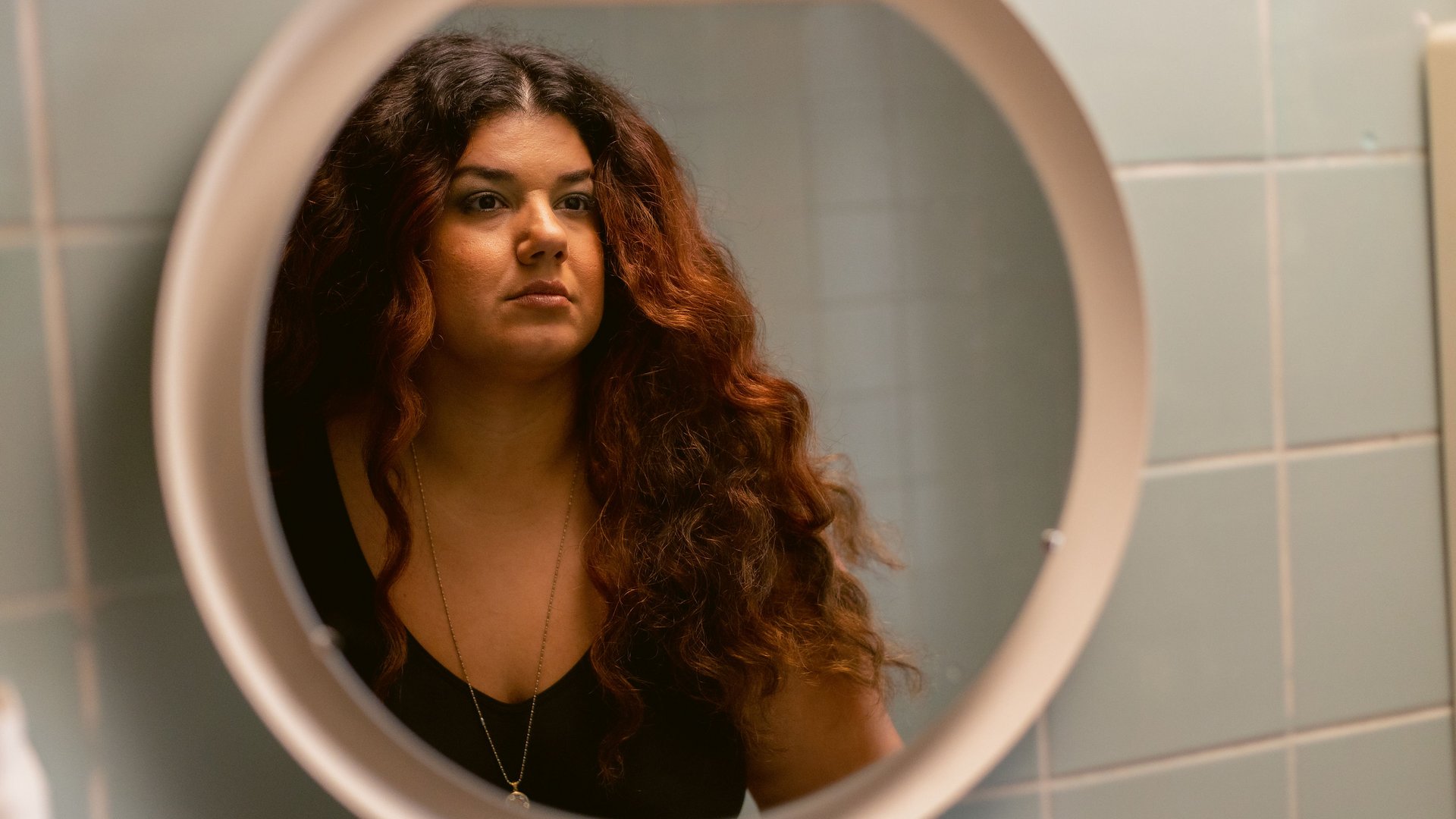
© Ana Grancho

© Ana Grancho
Faravaz Farvardin is an Iranian singer, activist, and feminist based in Berlin. In her homeland of Iran, sexist laws meant that she was only allowed to sing back-ups. However, in 2016, she performed a solo in the song ‘Dance with Me’, for which she was sentenced to one year imprisonment. She had to leave her country due to the extremely dangerous conditions in Iranian prisons. For six years, she has been living in exile and continues to use music as a tool to spread feminism and empowerment. At the Summer Preview, you will have a chance to see the short film ‘My Orange Garden’ with her. It impressively portrays her special relationship with her body.
When I was still living in Iran, my slogan was always ‘I am singing to stay alive.’ Because that was the only thing that could connect me to life. With all the censorship and the hard moments I experienced in Iran, especially as a woman, singing was the joy of my life and my love language. I could never forget singing—that is why I am still singing, even though I am living in exile.
After I had to leave Iran and started living in exile, I realized that whatever has happened and is still happening to me is happening because I was born in a female body. And it is not just me—this is also true for the women in my country. We are suppressed and depressed because we are living in female bodies. We cannot enjoy our lives, just because we have different bodies. I think this is a really important topic to talk about. It is why you see a lot of skin in my movie, a lot of female skin.
This is about not just bodies but also voices. My singing was banned because it comes from a female voice and a female body.
After I left Iran, I realized that I felt really ashamed of my body. I realized that my body is the thing that makes Mullahs and the Islamic regime so angry. That is why they put all that pressure on my body.
But I started to use my body and my voice as weapons. Because we need to be free. And what we need to do to win this fight is to scare them by loving and accepting our bodies. We need to show our bodies as much as we can.
My body is my home. Because that is the only place where I feel at home. Since having that realization, I have really loved my body more than ever before. Also, I am getting a lot more hate on social media because I am not ashamed of my body. It makes people, especially men, really angry when a woman is not ashamed of her body. This shows that it is very political to be born in a female body, especially in a bigger one. I am not ashamed of it, and I make them angry a lot of the time, and I love it.
We all know that female bodies are always sexualized. They are always supposed to be sexy and should always be used to please men. If you have a bigger body, and you do not fit into the standard beauty image, there is so much more pressure on you. That pressure increases if you are not ashamed of your body and start to use it as a weapon. Men get really hateful and angry.
From the reactions I get, I know that a lot of women start to feel much more comfortable in their own bodies after seeing me online and in the short film. And I am really glad to be able to inspire and empower other women to be truly themselves.
I always thought that home is a safe place, but Iran was never safe for me. After I started my new life in exile, I realized that this place cannot be my home either. And after some time, I realized that my body is my home. She comes with me wherever I go, she is my best friend, she loves me, and I love her.
Don’t force yourself to feel at home in your body. Just try to dance, sing, and do whatever you like. And then you will start to get used to it.
I don’t think anger is a good feeling, but I think anger is a better feeling than sadness. Anger contains motivation, and it provides the energy for change. If you can use it in a healthy way, you can empower yourself and other people with your anger. And that can be extremely helpful. Anger is able to heal and change us and our society.
They always told us, as women, that we have to be kind, that we have to look like ladies, and that we shouldn’t be angry, because that is not something that a good woman does. But if you feel angry, be angry. It is a part of you. Anyone who doesn’t like it can fuck off.
I can’t really wish for them; I think they are the wish. They do their best, and they are the best. They are inspiring, they are brave, they are everything. I am sure they will keep going until they win. My wish is to be with them, to see them, and to be able to help them to raise their voices. I wish to see them happy and in power.
I want the people who watch my movie to love their home more than before. And that home is their body.